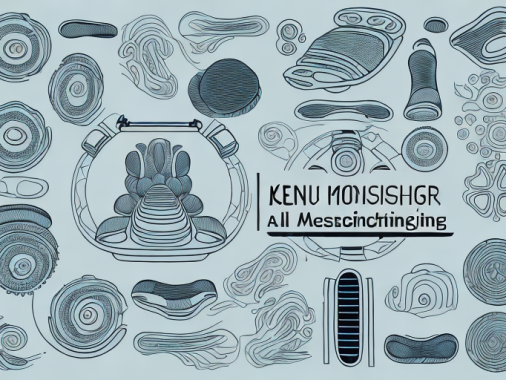In the world of healthcare and wellness, it can be confusing to differentiate between a massager and a masseur. On the surface, the two may appear similar — both specialize in giving massages — but there are some key distinctions between the two.
Definition of a Massager
A massager is a tool used to provide massage therapy. This tool is most commonly an electronic device powered by batteries or electricity. A massager can be pre-programmed with various settings and massage techniques or operated manually with a handheld device to massage various muscle groups of the body. Massagers usually resemble a palm-sized head that vibrates or rotates to deliver massage.
Effective massage therapy can provide relief from pain, improve circulation, and reduce muscle tension. With a massager, you can get a deep tissue massage, improve flexibility and mobility, and relieve sore muscles. Different types of massagers are available for a variety of convenience and massage preferences — ranging from stationary units to handheld models.
Massage therapy can also help to reduce stress and anxiety, improve sleep, and boost your overall mood. Massagers are a great way to relax and unwind after a long day, and can be used to target specific areas of the body that need extra attention. With regular use, massagers can help to improve your overall health and wellbeing.
Definition of a Masseur
A masseur is an individual trained in massage therapy and healing arts. A masseur is usually licensed and certified to provide professional massage services. This individual undergoes special training and may specialize in a specific type of massage therapy. Masseurs typically use their hands and fingers to manipulate muscles, trigger points, ligaments, and tendons.
Masseurs may use oils, lotions, and different types of massage equipment designed to provide targeted relief and improve muscle length and flexibility. By applying various massage techniques, masseurs can stimulate natural healing and activate the body’s relaxation response. A certified masseur should be prepared to discuss your needs, the best massage therapy for your condition, and provide proper instruction on how to use the equipment.
Masseurs may also use stretching and range of motion exercises to help improve posture and reduce pain. They may also provide advice on lifestyle changes that can help improve overall health and wellbeing. Massage therapy can be beneficial for a variety of conditions, including chronic pain, stress, and anxiety.
Qualifications and Training for Massagers
A massager does not need to be professionally trained or certified to be sold and used. However, a trained physical therapist may provide guidance as to how to effectively use a massager. To ensure proper care of your body, consider consulting with a trained professional before using a specific type of device or setting. Massagers may be university certified with a Bachelors in Medical Sciences or licensed through medical doctors.
In addition, some massage therapists may be certified through a professional organization such as the American Massage Therapy Association (AMTA). This certification requires a minimum of 500 hours of training and passing a written and practical exam. Massage therapists may also be certified in specific massage techniques such as Swedish massage, deep tissue massage, and sports massage.
Qualifications and Training for Masseurs
Masseurs receive extensive training in various massage therapies and healing arts. A certified masseur should be trained in anatomy and physiology, have knowledge of therapeutic massage techniques, and have at least 500 classroom hours in accredited schools with coursework on ways to provide pain relief and relaxation. A masseur should always have valid certifications or credentials.
Common Tasks Performed by a Massager
A massager is primarily used to provide physical relief from muscle aches, soreness, and pains, typically related to sports injuries, work injuries, posture, or repetitive strain activities. Common massagers available include percussion massagers, vibrational massage cushions, scalp massagers, or specialized units designed for feet or other areas of the body.
Common Tasks Performed by a Masseur
Masseurs can offer various types of massage services depending on their qualifications and expertise. Common types of massages include Swedish massage (designed for relaxation), deep tissue massage (applied to specific areas with increased pressure aimed at releasing trigger points), sports massage (designed for athletes), and hot stone massage (specialty massage utilizing stones heated for soothing relaxation).
Advantages and Disadvantages of Massagers
Advantages:
- Relatively inexpensive
- Wide range available to suit different body sizes
- Can be used independently and at any time
Disadvantages:
- Incorrect use may lead to skin burns or injuries
- Relief may not be as long-lasting as that achievable with a masseur
- Not able to target specific muscle spots as with a masseur
Advantages and Disadvantages of Masseurs
Advantages:
- Professional advice on proper technique for relieving specific pains
- Knowledgeable in ways to address problems from underlying muscle imbalances to exercising incorrectly
- Better long-term results from multiple sessions over time
Disadvantages:
- Masseurs may come with big price tags
- Scheduling difficulties due to limited availability at peak times
- Are limited in certain areas or geographic locations
Cost Comparison Between Massagers and Masseurs
Massagers can generally cost anywhere from $100-$400. The cost is usually dependent on the brand name and the power of the unit. While the average cost per hour for a masseur starts at around $60-$90 per hour (or more if they are experienced or have multiple certifications). The costs vary greatly between regions or cities. To save money, research masseurs in your area and look for any sales or discounts offered.
Both massagers and masseurs can help improve your well-being with their respective massage therapies. If you are looking for convenience, consider purchasing a massager — these are ideal for self-care at home. However, if you want an expert opinion on muscle composition and techniques that target areaspecific problems, then it may be worth the cost to visit a qualified masseur.





